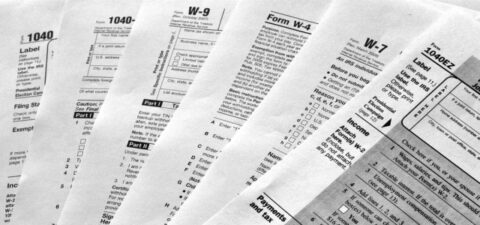Economics

Forging Consensus on Visa Program Critical to Crafting Effective Policy
A proposal being considered in the House revives the debate around the number of visas that would be allocated to less skilled workers, also known as “W” visas. In particular, Representatives Ted Poe of Texas and Raul Labrador of Idaho are working on an immigration bill that could double the number of visas of less skilled workers that the Senate settled on. Although the increased number could help address the labor shortage in some industries, this proposal would potentially cause a fracture in the consensus achieved between business and labor leaders who negotiated the levels that were included in S. 744. Ultimately, what is critical to success of a program depends on having the right players at the table ensuring both private and public interests are protected. Read More

Letter from Business Urges Congress to Create a 21st Century Immigration System
As an increasing number of organizations voice their support for comprehensive immigration reform, the business community added theirs this week through a letter to Congress. Business now joins a broad swath of the American public that wants Congress to pass immigration reform. The letter sent to Members of the U.S. House of Representatives represents a nationwide coalition of 420 companies and includes business and industry associations and state and local chambers of commerce. It encourages Members of Congress to enact legislation that would repair and modernize our immigration system and comes on the heels of other similar efforts by higher education administrators, faith groups, faculty and scholars, non-profits, and other coalitions. Read More

The Immigration Debate Could Use a Healthy Dose of Facts
Immigration is sure to be a hot topic when Members of Congress meet their constituents face-to-face during the upcoming summer recess. The full Senate has passed a comprehensive immigration reform bill that includes a controversial “border surge” as well as a path to citizenship for unauthorized immigrants already living in the United States; the House Committee on Homeland Security has passed an enforcement-only border bill that doesn’t even acknowledge the other components of immigration reform; and there continues to be much heated public debate about what the House will do next and whether the reform effort will survive the vagaries of partisan politics. As politicians and voters attempt to wade through all of the thorny issues that are raised by the topic of immigration reform, and as journalists attempt to report on these many complex issues, there is something which should be kept front and center: facts. Read More

New Estimates of State and Local Taxes Paid by Undocumented Immigrants
Undocumented immigrants who live and work in the United States pay billions of dollars in taxes every year to state and local governments. Given the chance to earn legal status, they would pay even more. Those are the simple yet powerful conclusions of a new study by the Institute on Taxation and Economic Policy (ITEP). According to ITEP, “undocumented immigrants paid an estimated total of $10.6 billion in state and local taxes in 2010.” Moreover, “allowing undocumented immigrants to work in the United States legally would increase their state and local tax contributions by an estimated $2 billion a year.” In short, legalization pays. Read More

DREAMers Push For A Path To Citizenship
Ahead of a Wednesday meeting of House Republicans to discuss various options on immigration reform, hundreds of DREAMers—young immigrants who arrived in the U.S. as children—held their own version of a citizenship ceremony and rally yesterday to push for legislation that will provide a roadmap to citizenship for not only themselves but for millions of other undocumented immigrants as well. “We have come today to claim our citizenship,” said United We Dream’s Lorella Praeli. “2013 is not the time for separate but equal. It is not the time for legalization for some and citizenship for others.” Read More

White House Report Outlines the Economic Benefits of Immigration Reform
As Republicans in the House of Representatives search for a way forward on immigration reform, they should keep in mind a critical point: overhauling the U.S. immigration system would help jump start the sluggish U.S. economy. In other words, any Member of Congress who has expressed a desire to cut the federal budget deficit, create new jobs and businesses, boost wages, and increase U.S. economic output should be for immigration reform—not against it. Conversely, those who stand against reform should carefully consider the price that will be paid by the U.S. economy, and U.S. workers, if reform does not occur. Read More

CBO Gives High Marks to Senate Immigration Bill
Yesterday, the Congressional Budget Office (CBO) released its much-anticipated “scoring,” or cost estimate, of the Senate immigration bill. Overall, the numbers are good. Very good. The CBO projects 20 years ahead and predicts fiscal savings in the amount of roughly $1 trillion. In addition, the CBO explained in a separate report that the bill would have a host of economic benefits that are not captured in a strictly fiscal analysis, such as GDP growth, increased productivity, and long-term wage increases. Read More

Three Ways Immigration Reform Would Make the Economy More Productive
By David Dyssegaard Kallick, Director of the Fiscal Policy Institute’s Immigration Research Initiative. A report just released by the Fiscal Policy Institute, Three Ways Immigration Reform Would Make the Economy More Productive shows that legalization of undocumented immigrants, done right, would do three things to increase economic productivity in the United States. Read More

How the Immigration Reform Bill Could Help Undocumented Farmworkers and Growers
Approximately 11 million undocumented immigrants could become eligible for legal status under S. 744, the immigration reform bill the Senate is considering, including millions of undocumented farmworkers. The importance of finding a way to create a legal workforce within the agriculture industry is critical, as undocumented farmworkers make up an estimated 53 percent of agriculture workers. Read More

Medicare’s Health and Well-Being Depends on Immigrants
Immigrants’ access to affordable health care is one of the most contested issues in the current immigration reform debate. Most advocates of comprehensive immigration reform point to the need to ensure that aspiring citizens have opportunities to access appropriate health care since such access will impact their ability to learn, to work, and to contribute to their communities. On the other end of the spectrum, anti-immigration groups tend to inaccurately emphasize that newly legalized immigrants would represent an excessive fiscal burden. This prediction is based on a misleading characterization of immigrants as “takers”—in other words, as disproportionate consumers of public resources. Several studies have shown that this is just not the case. In fact, non-citizens use public benefit programs at a lower rate than similar low-income native-born citizens. With regard to medical expenditures in particular, immigrants tend to use less health care than their U.S.-born counterparts. Read More
Make a contribution
Make a direct impact on the lives of immigrants.
